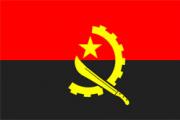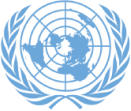Security Council
Open Debate
Non-Proliferation of Weapons of Mass Destruction (WMD)
23 August 2016
Statement
Mr. President,
We thank the Delegation of Malaysia for convening this open debate and welcome the Honourable Dr. Ahmad Zahid Hamidi, Deputy Prime Minister and Minister for Home Affairs of Malaysia for Presiding over this important meeting.
We also thank the briefers for their important insights on this critical issue, and the Secretary-General for his remarks and contribution to the discussion on the threat posed by Weapons of Mass Destruction (WMDs) falling into the hands of non-state actors, armed groups and terrorists; on the measures aimed at facing this threat and the responsibilities of States to reinforce operational control mechanisms of weapons and materials related to WMD; in adopting the appropriate legislative framework preventing the proliferation of WMD to non-state actors, armed groups and terrorists; the States response to international cooperation and to provisions of resolution 1540 of reporting on national and regional measures taken for the resolutions´ s implementation; the review, under way, of resolution 1540 for the strengthening of international commitments in preventing and confronting such a threat.
The Government of Angola is strongly concerned with ongoing challenges and conflicts in the African continent and elsewhere. We avail of this opportunity for an incursion into a correlated subject to the matter under discussion, that much more than this somewhat virtual exercise we are doing, the real issue in contemporary conflicts, where weapons are easily obtainable, cheaply purchased through criminal networks, and largely supplied by Sates, to non-state actors, armed groups and also to terrorists, in a dangerous game of influence and power, spreading destruction, anarchy and chaos: small arms and light weapons are the real weapons of mass destruction in the conflicts in Africa, in the Middle East and elsewhere.
Given the massive destructive character of these weapons, we are of the view that the regime impending on the traffic and supply of small arms and light weapons to non-state actors should be strengthened and identical restrictive measures applied, as per resolution 1540. We further think that the definition of non-state actors in resolution 1540 should be broadened and applied to a larger scope of non-state actors than those defined in the resolution.
Mr. President,
Angola is a state party to the major international instruments related to WMDs: the Non-Proliferation and Nuclear Test Ban Treaty, the Chemical Weapons Convention, and the Biological Weapons Convention. We are devising and implementing relevant legislation and institutions which would allow for more effective implementation of resolution 1540 domestically and regionally, in order to enhance cooperation and collective efforts to ensure that all chemical, biological, radiological and nuclear materials, equipment and technologies on the African continent are used exclusively under the tenets of law and for peaceful purposes.
As a means of fulfilling its commitment to the implementation of resolution 1540 and to the non-proliferation regime, and in response to ever frequent reports of attempts by terrorist groups to produce or obtain biological agents and pathogens, as well as the use of chemical agents in certain conflicts, the Angolan government has redoubled efforts to create an effective, institutionalized national mechanism to address such threats.
Currently, Angola is working on drafting legislation to establish a National Authority for the WMD’s, which is a body to be coordinated by the Ministry of National Defense and whose main purpose will be to formulate the National Action Plans, and prepare national implementation reports on the country’s capacity related to the control of WMD’s. Greater interaction with neighboring states is key in facing a most pressing challenge to the African Countries, specifically on questions related to border security and control of illicit trafficking, the need to reinforce national and regional security, and increased technical assistance from the 1540 committee and other subsidiary organs of the Security Council dealing with counter terrorism.
Finally, Mr. President, we are of the view that the effective implementation of resolution 1540 has to be coupled with significant progress in the prevention of conflicts and the resolution of protracted ones, not outright interference and the inflaming of conflicts through the supply of weapons to non-state actors and to oppressive regimes; the root causes of terrorism must be addressed as well as the serious socio-economic and political difficulties faced by the countries of the region. If the growth of terrorism and its recruitment appeal are to be curtailed the issues of unemployment among the youth and corruption must be dully addressed, while development and good governance must be top priorities.
Thank you Mr. President


